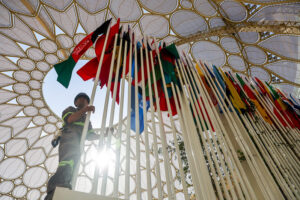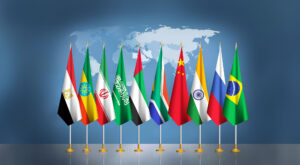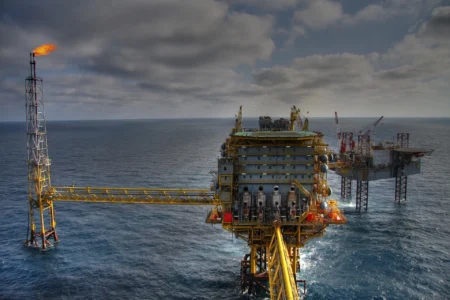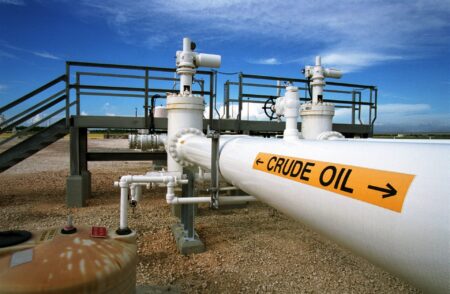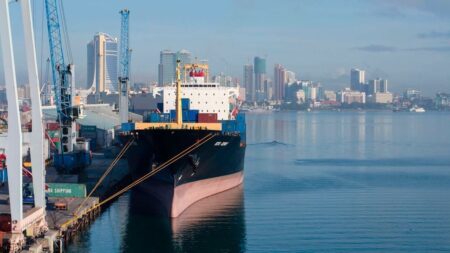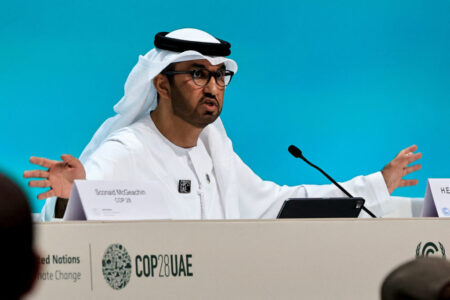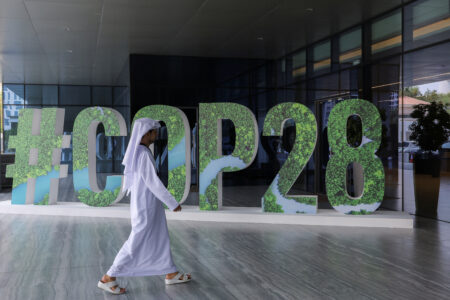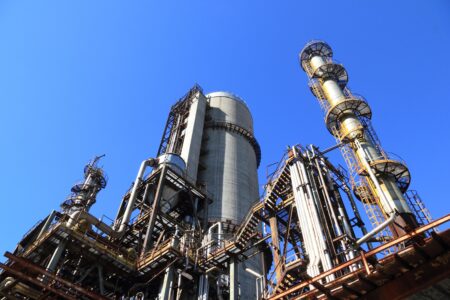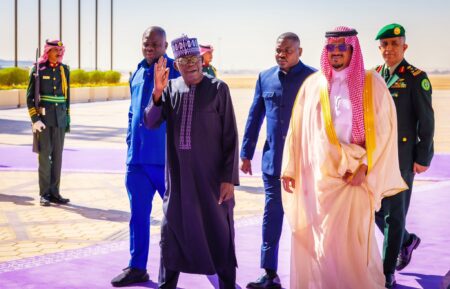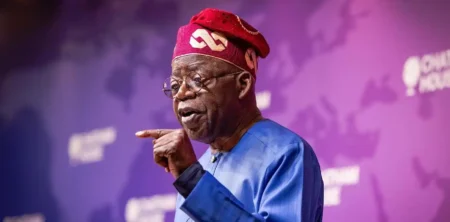- 1.5°C future on the line: Why nations must cut emissions now or lose target
- IMF Growth Forecasts: BRICS to Lead the World in the Next 5 Years
- Vantage Capital seals exit from PickAlbatros Hotels after $18.4M pandemic boost
- Madica backs Earthbond in bold pre-seed bet on sustainable solutions
- Venture capital and debt drive growth in Kenya’s agri-tech sector
- Sustainability Week Africa: Pioneering change amidst climate challenges
- Refugee Crisis in Chad as War and Hunger in Sudan Drive Thousands Across Border
- Senegal 2050: A Blueprint for Economic Transformation
Browsing: Oil and Gas
- The construction took over 20 years and bears a processing capacity of 650,000 barrels per day 250,000 per day of gasoline and 100,000 of diesel.
- The Dangote oil refinery might halt the decades-long gasoline trade from Europe to Africa worth $17 billion each year.
Dangote Oil Refinery
Aliko Dangote, Nigeria’s and Africa’s wealthiest man ambition to foster energy reliance in his motherland and the region at large might be at risk. The giant oil refinery which is said to possess the potential to end decades-long gasoline trade from Europe to Africa worth $17 billion a year.
Concerns and tensions are high as a myriad of issues emerged before and since the $ 20 billion refinery came to life. According to various news reports, including the BBC and Reuters, the construction began in 2016 and started producing diesel and aviation fuel in January this year as petrol is expected to …
- According to the Turkish Energy Minister, Turkey will have exclusive rights for search and production when we find oil in these areas.
- Turkey and Somalia signed a defense and economic cooperation agreement during the Somali Defence minister’s visit to Ankara
- In March Somalia inked an oil and gas deal with Turkey which officials mentioned would foster cooperation in the exploration and exploitation of the deposits.
Somalia and Turkey Oil Deal
Despite being torn apart by civil war, Somalia’s geo-seismic studies have shown the war-torn country may have at least 30 billion barrels of oil and gas reserves.
Inching towards stability and fostering civil rest amid Islamic insurgents posing a threat to peace and harmony, Somalia’s newly discovered oil and gas deposits could be the nation’s breakthrough.
Although the resources take time to develop – exploration usually takes three to five years and production can only begin after the latter is …
- How Niger-Benin dispute mar $400 Million oil exports deal with China
- Tensions between neighbouring West African nations Benin and Niger are escalating amid a deepening dispute over oil exports.
- Further, Niger accused Benin of kidnapping five of its nationals.
Niger-Benin dispute
Peace in West Africa is becoming scarce as Niger and Benin dispute takes a different shift forcing Niger to consider routing its crude oil pipeline (1,930 kilometer) stretching from Agadem oil field to the port of Cotonous in Benin.
Niger’s ambition to become an oil exporting nation is threatened by internal security crisis and a diplomatic dispute with neighbor Benin. The conflict is a product of last year’s coup that toppled the West African nation’s democratic government.
According to information from Africa News, It was designed to help the oil-rich but landlocked Niger achieve an almost fivefold increase in oil production through a $400 million deal signed in April …
- Tanzania has offered the Uganda National Oil Company (Unoc) to use the Dar es Salaam port for oil importation.
- This presents a strategic alternative amid the ongoing importation stalemate between Uganda and Kenya.
- The legal dispute between Uganda and Kenya over oil importation policies is pending before the East African Court of Justice (EACJ), with indications that Uganda may withdraw the case.
Tanzania has stepped forward with an enticing proposition that Kampala finds hard to ignore, especially regarding the ongoing deadlock in Nairobi-Kampala oil imports.
Tanzania has extended an offer to the Uganda National Oil Company (Unoc) to utilise the Dar es Salaam port for its fuel importation needs. This development comes as Uganda explores alternatives in response to Kenya’s steadfast position on Kampala’s oil importation demands.
Uganda’s grievance at the East African Court of Justice (EACJ) remains pending amid these unfolding events, casting a shadow of uncertainty over …
- The continent’s abundant resource base and untapped opportunities have already begun to attract European Investors, countries, and companies.
- Clear transition strategies and enhanced regulatory frameworks consolidate Africa’s attractiveness as an investment destination.
- With the resources available, many African countries – either oil producers or those on the verge – have begun implementing strategies to define a long-term vision for the sector.
Amid supply challenges and efforts to diversify imports, Africa has emerged as a highly strategic investment opportunity for many European Investors, countries, and companies.
The continent’s abundant resource base and untapped opportunities have already begun to attract players from across the bloc. New market dynamics offer the chance for African countries to take tangible actions to advance the continent’s attractiveness for foreign investment.
The upcoming Invest in African Energy Forum in Paris from May 14-15 has been touted as a testament to the efforts to promote investment in the …
- For the first time in climate summits, diplomats from nearly 200 countries at COP28 have agreed on a new global climate pact.
- While past United Nations climate deals called for countries to reduce emissions, they shied away from overtly using the words “fossil fuels.”
- Africa should be allowed to exploit its significant oil and gas reserves to develop its economies before transitioning to cleaner energy forms.
For the first time in climate summits, diplomats from nearly 200 countries at COP28 have agreed on a new global climate pact that clearly outlines the need to “transition away from fossil fuels,” including oil, gas, and coal that have been hazardously heating the planet.
The agreement was reached on the final day of the COP28 in Dubai, United Arab Emirates, following two weeks of intense negotiations in a year regarded as the hottest. European leaders and most nations most exposed to climate-fuelled …
- Global oil and gas producers have remained under immense pressure to show more goodwill in the energy transition agenda.
- As this year’s climate summit enters its homestretch, the most intriguing question is whether the final accord will pledge to reduce fossil fuels.
- The oil and gas industry’s confidence has also caused tension with renewable groups and climate activists.
The 2015 Paris Agreement establishes measures and conditions requiring all member states to mitigate climate change through emission reductions. Further, Goal 7 of the 2030 Agenda for Sustainable Development calls for concerted efforts to ensure access to modern, cleaner forms of energy, while Goal 13 calls for action to combat climate change.
Consequently, the global energy transition is on the cards. There have been calls from the global north to the south for the world to find a proper compromise on energy needs even as climate change effects put sterner demands on …
Africa’s oil and gas industry looks flat in the final quarter of 2023. That is, as AEC details in its newly released 2024 African Energy Outlook, capital expenditure (CAPEX) on upstream projects is still rising, but it is on a relatively slow upward trajectory — and it is moving up more slowly than we had predicted last year because of changes in the timeline of certain African upstream projects.…
- The Nigeria-Saudi Business Council could see the Middle Eastern country fund several sectors of the West African economy.
- Through the council, the Kingdom of Saudi Arabia plans to replicate various investments made in Pakistan, Indonesia, and India in Nigeria.
- Africa has increasingly become the subject of high competition between global economic powers.
Nigeria anticipates multi-billion-dollar “immediate” investment flows from the Kingdom of Saudi Arabia. This follows the signing of an agreement between the countries to establish a business council. The Nigeria-Saudi Business Council could see the Middle Eastern country fund several sectors of the West African economy. These include technological advancements, telecommunications, energy, oil and gas, and agriculture.
The two countries resolved to restore the Nigeria-Saudi Business Council. Crown Prince Mohammed bin Salman Abdulaziz proposed the Business Council in 2019. However, the former president of Nigeria, Mahammadu Buhari, resisted the council.
“We expect to see significant investment flow immediately,” Abubakar …
As the 16th president of Nigeria, Bola Ahmed Tinubu has inherited an economy grappling with record-high inflation, enduring unemployment, extreme poverty, crumbling infrastructure and high levels of insecurity. However, Nigeria’s debt situation is a sore thumb among these challenges.
Nigeria’s external debt stock stood at US$41.69 billion in 2022. Multilateral lenders accounted for almost half of this figure, with Eurobonds taking about 38 per cent of Nigeria’s external debt. China’s Exim Bank accounts for US$4.3 billion, or 86 per cent of the $5 billion in bilateral debt.…
